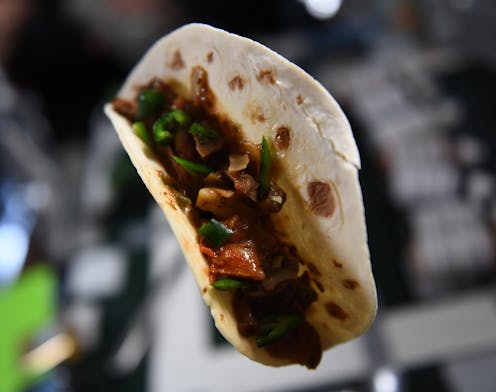Humans are going back to the Moon, and beyond – but how will we feed them?
- Written by Kim Johnson, Senior lecturer, La Trobe University

NASA’s Artemis I launch is a major step forward in humans going deeper and spending longer in space than ever before.
Future Artemis missions plan to take crew to the Moon and eventually Mars, which is likely to be a three-year round-trip.
But what will the astronauts eat? There are only so many protein bars and vitamins one can tolerate and survive on for years on end.
Plants are the basis of life on Earth with their amazing ability to convert light, water and carbon dioxide (CO₂) into food, and are the logical solution to support humans in space.
The challenges of a space garden
Astronauts have already eaten space radish, chilli peppers and lettuce grown on the International Space Station, and having freshly grown veggies in microgravity can support health and wellbeing. But there are a number of challenges in growing a flourishing space garden.
Space environments are CO₂-rich, lack soil microbes, have altered gravity, are exposed to potentially harmful solar radiation, and need to use recycled, high-salt water. For plants to thrive in space and offer the full range of nutrients for human health, they need a redesign.
After months of freeze-dried or prepackaged space food, imagine going to your space garden, picking a ripe juicy tomato and spicy chilli to add to your tacos. Adding fresh produce has been a good way to improve astronaut wellbeing, supply essential vitamins and minerals, and add variety and flavour, especially as low-gravity environments affect our taste and smell.
A renewable source of fresh food is essential to future long-term space missions, to avoid astronauts experiencing “food fatigue”, malnutrition and weight loss.
Space plants are currently grown in closed boxes with low energy LED lights, porous clay “soil” with water, nutrients and oxygen supplied to roots; high-tech sensors and cameras monitor plant health. Plants did not evolve to grow in a box and use energy and resources in readiness for changes in light, temperature and disease, limiting full growth potential.
So there is great opportunity to adapt plant genetics to produce faster-growing “pick and eat” food crops such as tomato, carrot, spinach and strawberry designed to reach their maximum potential in closed, controlled environments.
A sustainable space plant future
Future plant growth systems for space will need to be entirely sustainable. That means working alongside all the other systems on a space station or a lunar/Martian base, recycling water and nutrients.
All plant parts will need to be food, compost or converted into useful products such as fuels and plastics. Human waste, including urine, offers a nutrient source for plants, yet they also need to be able to cope with this salty water supply. However, there’s one plant that could be particularly suited to the task.
Duckweed may not be available at your local supermarket, but this very fast-growing plant could be in all space gardens thanks to its ability to thrive in recycled water and be zero waste, with the whole plant being eaten.
Duckweed doubles its weight in just two days, is harvested continually, and is high in protein, nutrients, antioxidants and vitamins. Only a few essential elements (such as vitamin B12/D) are missing that could make it a reliable base source for complete human nutrition.
Recent technical advances in genome editing, gene regulation, and methods to analyse nutrients can be harnessed to adapt duckweed and other plants for optimal growth, minimal waste and complete nutrition.
New plants developed in this way can contain proteins perfectly balanced for human digestion and use, healthy plant oils for an energy boost, and soluble fibre for better gut and cardiovascular health.
Striving to explore space has brought us thousands of innovations we use in everyday life. We can expect that inventions we come up with to support humans thriving in space will deliver multiple and essential sustainability benefits to Earth, especially to on-demand supply of nutrition and biomaterials. Experts across the globe are working together toward these dual goals, including plant biologists, engineers, food chemists, psychologists, sensory experts, nutritionists, ethicists, and legal experts.
A new frontier of human achievement is on the horizon – humans will soon not only be looking up to the night skies in wonder, but also travelling to those destinations beyond our own atmosphere, and in so doing planting seeds of a new way of life on Earth and beyond.
Authors: Kim Johnson, Senior lecturer, La Trobe University




